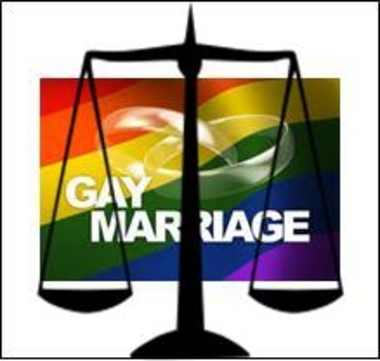January 9 is important day for marriage equality

Friday, January 9 is shaping up to be an important date in the fight for marriage equality. On that day, the Fifth Circuit Court of Appeals, based in New Orleans, will hear three gay marriage appeals: two, from Texas and Mississippi, in which a federal district court judge found those states’ ban on same-sex marriage unconstitutional; and one from plaintiffs in Louisiana, in which a district judge upheld that state’s right to ban gay marriage.
More importantly, on that date the Supreme Court of the United States will consider, in its conference, whether to take up an appeal in DeBoer v. Snyder. In that case, a district judge found Michigan’s ban on gay marriage unconstitutional, under the Fourteenth Amendment. On November 6, the Sixth Circuit Court, in a 2-1 decision, reversed the district court, saying that states have the right to ban gay marriage.
The court also reversed related same-sex marriage cases from Ohio, Tennessee and Kentucky, in which district judges had ruled against state gay marriage bans. It is the only circuit court decision upholding the right of states to enact bans. The Tenth, Seventh, Fourth, and Ninth Circuits have all ruled that the bans are unconstitutional. On October 6, the Supreme Court’s refusal to hear appeals from three of those courts, and later action refusing appeal from the Ninth, increased the number of states where same-sex marriage is legal from 19 to 35.
It is considered likely that the Supreme Court will decide to take up the issue. As long as circuit courts agreed on the matter, there was no overwhelming need for the court to hear the issue. But with the Sixth Circuit decision, and the possibility of a similar one from the Fifth Circuit, the high court may feel compelled to consider whether gay marriage bans violate the Fourteenth Amendment’s principle of equality under the law.
While the outcome of a SCOTUS decision is uncertain, many experts believe that the court will find a constitutional right to same-sex marriage, settling the issue for the entire country. That is because while the court is generally reluctant to grant a constitutional right, it is usually even more unlikely to take away rights that have been extended to a majority of people in the country. According to the Human Rights Campaign, 64 percent of the US population lives in a state with marriage equality.
The Fifth Circuit's hearing on January 9, in the Louisiana, Mississippi, and Texas cases, and the Supreme Court conference that day, shapes it up to be a landmark date in the fight for marriage equality.
By Rob Howard, Associate Editor
The Gayly – December 9, 2014 @ 12:15pm





